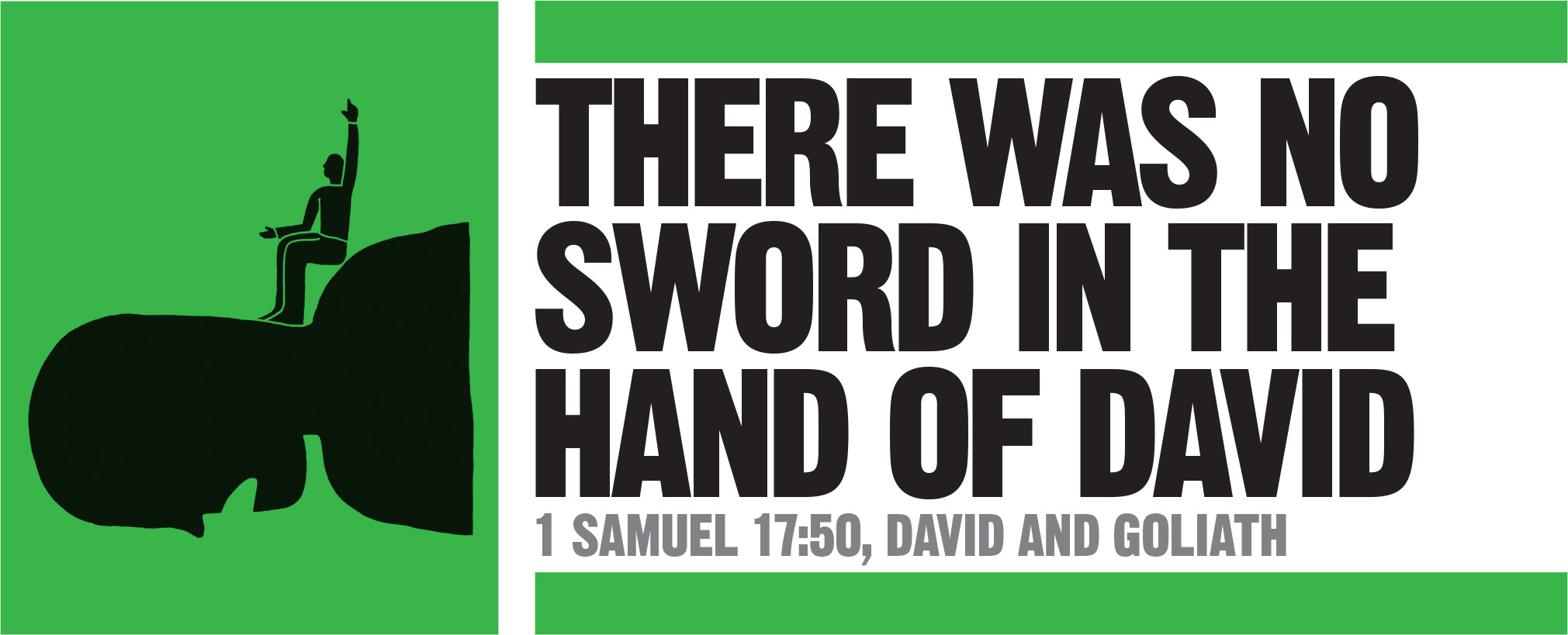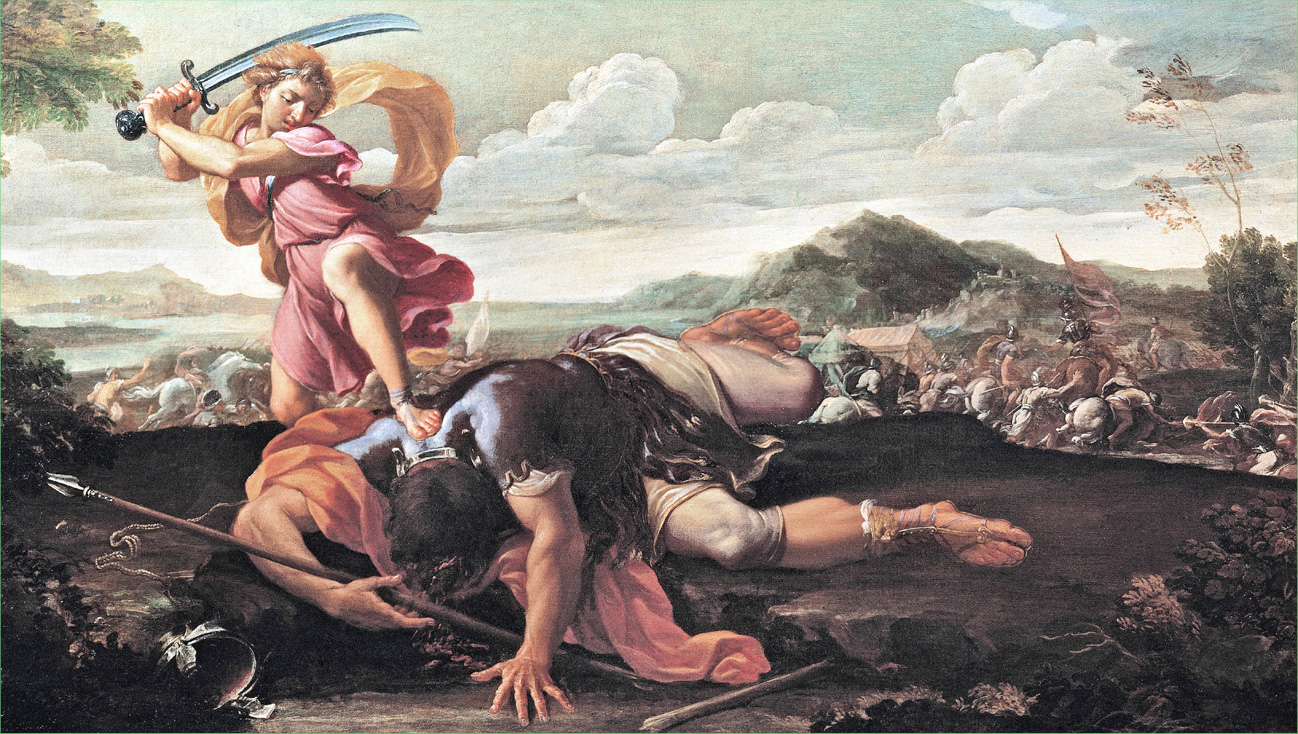
IN BRIEF
1 Samuel 17
God’s anointing is greater than earthly powers
Around 1020 BCE Valley of Elah, Judah.
David The youngest son of Jesse of Bethlehem. He starts off as a shepherd and rises to become a mighty warrior and second king of the Israelites after the death of Saul.
Goliath A giant from Gath who is the champion of the Philistines.
Saul Israel’s first king, who proves to be a weak ruler.
Samuel The last of the judges and an important prophet who anoints Saul and David as Israel’s first and second kings.
The heroic victory of a simple farm boy over a giant warrior is one of the most inspiring tales in the Bible. As the king of the Israelites, Saul, wavers uncertainly on the edge of battle, David’s firm actions and his enduring faith in God grant the Israelites a decisive victory.
For 40 days, the Israelites have been locked in a stalemate with the Philistines, about 15 miles (24 km) southwest of Jerusalem. Each morning on the battlefield, a warrior named Goliath emerges from the Philistine ranks and bellows out a challenge to the Israelites, daring one of them to come out and fight him. Although sources differ on his exact height, Goliath is described as a giant, and any man foolish enough to fight him looks certain to be defeated.
David is tending sheep when his father tells him to take some food to his older brothers, who are serving in Saul’s army. Although he is the youngest of his brothers, David’s potential has already been recognized by God. As related in 1 Samuel 16, he has been secretly anointed by Samuel to be Israel’s next king, although David is unaware of this at the time.

The arrival of David
When he arrives at the battlefield and sees Goliath’s challenge going unanswered, David is determined to fight him. Although Saul has offered rich rewards for anyone brave enough to take on Goliath, at first he tries to deter David, telling the shepherd that Goliath “has been a warrior from his youth” (1 Samuel 17:33). David responds by telling Saul how, when tending his father’s sheep, he fought off and killed a lion and a bear. David has faith that, with God on his side, taking on Goliath will not be a problem. Armed only with his staff, a slingshot, and five pebbles from the bed of a stream, he goes off to fight the Philistines’ champion.
The duel starts with Goliath hurling curses at David, while the latter tells the giant he is fighting him in the name of God—whom Goliath and the Philistines have foolishly defied. “This day,” he says, “the Lord will deliver you into my hands and I’ll strike you down and cut off your head” (17:46). As the heavily armored Goliath advances, David seizes his chance. Reaching into his bag, he takes out one of the pebbles, slips it into his slingshot, and shoots it, striking Goliath on the forehead. The giant falls to the ground, and David uses Goliath’s own sword to chop off the giant’s head. The Philistines flee—pursued by the Israelites, who chase them to Gath and Ekron before returning to plunder the Philistines’ camp.
“You come against me with sword and spear and javelin, but I come against you in the name of the Lord Almighty.”
1 Samuel 17:45
Saul’s failings
David’s faith in God allows him to defeat Goliath, and this story can also be seen as evidence of Saul’s moral deficiencies as king, as he does not trust in God enough to have faith in victory. Although Saul rewards David by promoting him to a high rank in his army, he soon becomes jealous and begins to plot David’s downfall.

Clash of champions
David and Goliath’s duel was not the only clash of champions in the ancient world, although it is the only one recorded in the Bible. In classical Greece, champions from Sparta and Argos fought the so-called Battle of the Champions in 546 BCE. It ended with both sides claiming victory. Much later, in around 133 BCE, Scipio Aemilianus accepted a challenge from an Iberian warrior parading in front of the Roman ranks, daring someone to fight him. Sources say the Iberian was a giant, while Scipio was a much smaller man. Nevertheless, like David, he prevailed.
In medieval times, the notion of champions became embedded in law. Trial by combat was used to determine God’s favor and thus a person’s guilt or innocence.
See also: Samson • David and Bathsheba • The Wisdom of Solomon • The Psalms
